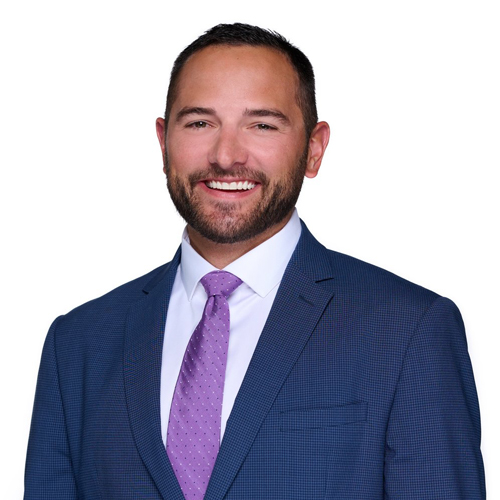After years of working hard and building up your wealth to considerable amounts, you’ll finally let out a sigh of relief. With significant wealth accumulated, you might feel more financially secure. You’ve made it, and financial freedom is finally at hand! However, you shouldn’t let your guard down. Years of hard work and savvy financial decisions can be wiped out with just one harsh judgment in the courtroom. So now that you have more than ever to lose, it might be high time to switch your focus from asset accumulation to asset protection. One excellent way to shield your gains from creditors and lawsuits is to utilize an Asset Protection Trust.
What Are Asset Protection Trusts?
How much of your assets are truly yours? On paper, they may be yours, but that means they’re vulnerable to being taken away. To avoid this risk, a seemingly counterintuitive solution is to not own the item in the first place. After all, someone can’t take from you what you don’t possess. This paradoxical principle lies at the heart of asset protection trusts.
An asset protection trust is a trust that is specifically designed to protect an individual’s assets from creditors, lawsuits, and other potential financial threats. Unlike typical trusts, asset protection trusts often allow the trust’s creator, or “grantor,” to benefit from the assets as a beneficiary while placing them outside the reach of creditors. But before we get into the details, it’s imperative to realize that APTs are complex legal structures and should only be established with proper legal counsel.
Types of Asset Protection Trusts
Depending on your needs and purposes, you can choose from one of two kinds of asset protection trusts – Domestic and Foreign.
Asset Protection Trusts Comparison
| Aspect | Domestic Asset Protection Trusts | Foreign Asset Protection Trusts |
|---|---|---|
| Jurisdiction | Within the United States | Outside the United States |
| Pros |
|
|
| Cons |
|
|
| Availability | Available in numerous U.S. states | Available in various countries (e.g., Cayman Islands, Isle of Man) |
Domestic Asset Protection Trusts
Domestic Asset Protection Trusts operate within state legal frameworks. The first domestic asset protection trust was established in Alaska in 1996, and since then, numerous other states have followed suit to varying degrees. Now, since they are trusts operating within state legal frameworks, and federal law trumps state laws, assets are still vulnerable at the federal level, such as bankruptcies. Additionally, even at the state level, APTs are not foolproof, and their effectiveness can vary based on individual circumstances and legal challenges.
Each state has its own laws and regulations. For example, a Tennessee Domestic Asset Protection Trust doesn’t require the grantor or beneficiary to be a Tennessee resident, but the trustee must be, and the trust can exist for 360 years.
Foreign Asset Protection Trust
A Foreign Asset Protection Trust (FAPT) offers even greater protection than its domestic counterpart by placing assets in a jurisdiction outside of the United States. You basically transfer assets to another country’s own Asset Protection Trust. Most importantly, that country should be one that does not honor or enforce the judgments of other countries, such as the Cayman Islands or the Isle of Man.
The primary goal of asset protection planning in this context is deterrence, making it so difficult and costly for creditors to pursue claims that they’re unlikely to bother. Compare the ease of filing a claim
at your local courthouse to the hurdles faced by a creditor who would have to navigate unfamiliar laws, hire a local attorney, and convince foreign courts to take on their case – an almost insurmountable task.
However, establishing a Foreign Asset Protection Trust (FAPT) is no cakewalk either. It requires significant time, money, and effort, with additional burdens such as strict reporting requirements and potential tax liabilities. And just when you think you’ve got it covered, the laws of that country can change overnight, introducing an unpredictable element that could possibly be impossible to anticipate.
Relinquishing Control Of Your Assets
The further your assets are out of your control, the weaker any claims against the assets will be. For example, if you declare your friend as the trustee, the courts have a significantly greater chance of dissolving the trust or declaring the assets fair game to creditors. Distance is key, and the more, the better.
To ensure the assets are wholly out of your control, the trust needs to be ‘irrevocable’, meaning that once it’s established, its terms and conditions cannot be altered, and the trustee has full control over the assets. The trustee can then execute ‘distributions’ to the trust’s grantor (i.e., you). Therefore, you don’t have any control over your assets but you do reap the benefits of them. Naturally, this raises valid concerns.
If you don’t have control over the assets or the trustee, how can you guarantee that you will receive distributions?
When you establish the trust, you can lay out general terms regarding when contributions will be made based on, for example, life milestones or general needs. They shouldn’t be too specific, though; otherwise, the courts could view the trust as a sham. Instead, consider selecting a professional, third-party neutral trustee, such as a financial advisor or attorney. This trustee will be responsible for acting in the best interests of the beneficiary, making decisions they feel are appropriate while also adhering to the trust’s criteria and preserving its protective features.
You also cannot move assets into a trust after you’ve received a judgement. If you do so, the transfer will be considered fraudulent and your assets will be vulnerable to creditors. Additionally, there are lookback windows attached to transfers to asset protection trusts; while they vary from state to state, you can expect that any judgments applied to you within a few years upon creation of the trust will also leave your assets vulnerable.
For example, let’s say that you open an asset protection trust and a year later are involved in a lawsuit resulting in a million-dollar fine. The assets in your newly minted APT would be fair game to creditors.
Who Benefits The Most From Asset Protection Trusts?
Ultra-high-net-worth families, professionals of high-risk occupations such as doctors and lawyers, business owners, and anyone susceptible to litigation and professional liability stand to gain the most from Asset Protection Trusts.
In Conclusion
Asset protection trusts can be a powerful tool in your financial toolkit, especially if you’ve worked hard to build significant wealth. While they may seem complex, they offer a level of security that’s hard to match with other financial instruments. However, to make the most of their benefits, it’s key to plan ahead, as these trusts are most effective when established well before any potential legal issues arise.
As with any major financial decision, it’s always best to consult with a professional. Here at WealthGen Advisors in Sarasota, we’ve assisted numerous professionals and business owners in integrating asset protection strategies into their broader financial plans.
Don’t wait until it’s too late to protect what you’ve worked so hard to build. Click the button below, and let’s work together to secure the gains you’ve already made.













